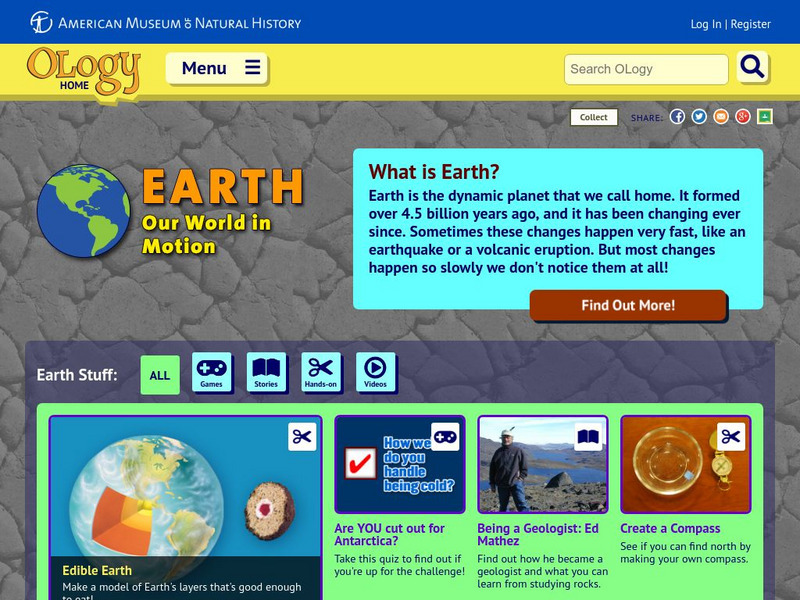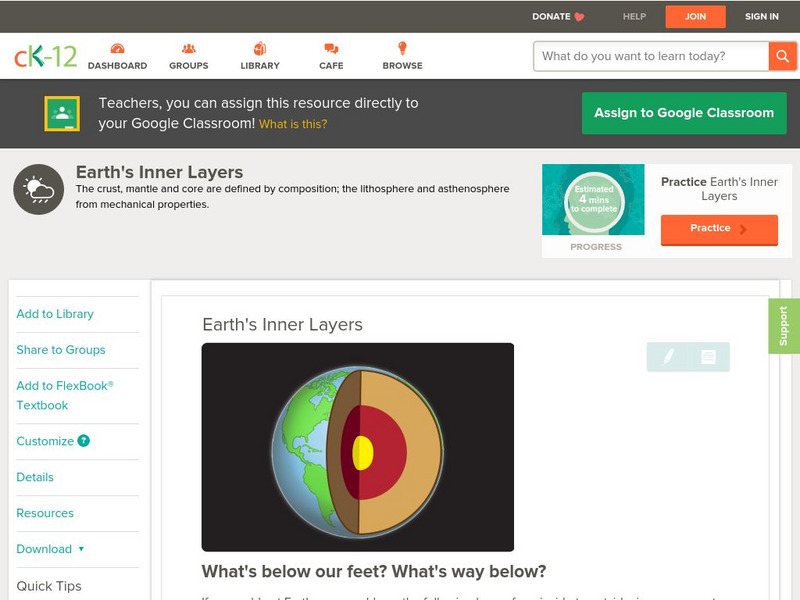Hi, what do you want to do?
Curated OER
Geographic Information Systems
Students examine the concept of geographic information systems (GIS) and its basic components. They explore an application program using GIS technology and list the various uses for GIS.
Curated OER
Bacterium Cells
In this bacteria worksheet, students read several elements of bacterium cells, their diet, types, locations, reproduction, resting stages, effects of, and classification. Students also study a cross-section of bacterium cells.
Ocean Explorer
Living with the Heat
Young oceanographers study the Submarine Ring of Fire, which is a series of deep-water volcanic vents that come up from the ocean floor. Learners take a close look at the unique ecosystems that are associated with these areas, how these...
Curated OER
Spring Has Sprung
Spring lesson plan ideas can allow students and teachers a chance to use the outdoors as a classroom and a source of study topics.
Curated OER
Give me Food!
Students study the food guide pyramid and use it to create their own eating program.In this health lesson plan students visit websites to calculate their BMR, activity level and weight then create a nutrition plan
Curated OER
Creating Journals
Students take a virtual tour of Yosemite and selects photographs to use in their journal.
American Museum of Natural History
American Museum of Natural History: O Logy: Earth: Our World in Motion
This resource is a place for learning all about the Earth--the Earth's layers, its history, rocks and minerals, and interesting Earth science facts and discoveries. Explore, ask questions, find information, and meet American Museum of...
CK-12 Foundation
Ck 12: Earth Science: Earth's Inner Layers
[Free Registration/Login may be required to access all resource tools.] Identifies and describes the two internal layers of Earth.
Annenberg Foundation
Annenberg Learner: Essential Science for Teachers: Earth and Space 3
Visit an active volcano site to find out the connection between the movement of the Earth's plates and the processes deep within the Earth's interior. [58:23]
Science Buddies
Science Buddies: Get Down and Dirty: How Does Soil Change With Depth?
What covers less than 10% of the Earth's surface, yet is a vital natural resource for terrestrial life? What filters ground water and supports most of our food production, not to mention the production of building materials and paper?...
CK-12 Foundation
Ck 12: Earth Science: Layers of the Atmosphere Study Guide
[Free Registration/Login may be required to access all resource tools.] This study guide reviews the main points to know about atmospheric layers. Includes several questions to check for understanding.
Science Struck
Science Struck: Layers of the Atmosphere in Order
Describes each of the five layers of the atmosphere from the troposphere, which is closest to the Earth, up to the outermost one, the exosphere.
Science Struck
Science Struck: The Layers of the Earth's Atmosphere
Find out about the five layers of the atmosphere in this resource which provides loads of information about the troposphere, stratosphere, mesosphere, thermosphere, and exosphere.
Ducksters
Ducksters: Science for Kids: Composition of the Earth
Kids learn about the science of the composition of the Earth. Different layers and what they do.
ClassFlow
Class Flow: The Layers of the Earth
[Free Registration/Login Required] The lesson teaches fifth grade students about the 4 layers of the Earth. Characteristics of each layer are presented. The lesson incorporates video, student participation, and Activote assessment. The...
Center for Educational Technologies
Cotf: Plate Tectonics
Plate Tectonics provides geology with a comprehensive theory that explains how the Earth works.
Read Works
Read Works: A Hole in the Planet
[Free Registration/Login Required] An informational text about the layers of the Earth and a place near the Canary Islands where there is a hole in the crust. A question sheet is available to help students build skills in reading...
Center for Educational Technologies
Earth Science Explorer: The Rock Cycle
This one-page explanation of the rock cycle contains a very helpful diagram and useful explanatory notes. Site explains how rocks are made and broken down.
Science Struck
Science Struck: The Four Main Layers of the Earth
Gives short descriptions of the crust, mantle, outer core, and inner core.


















